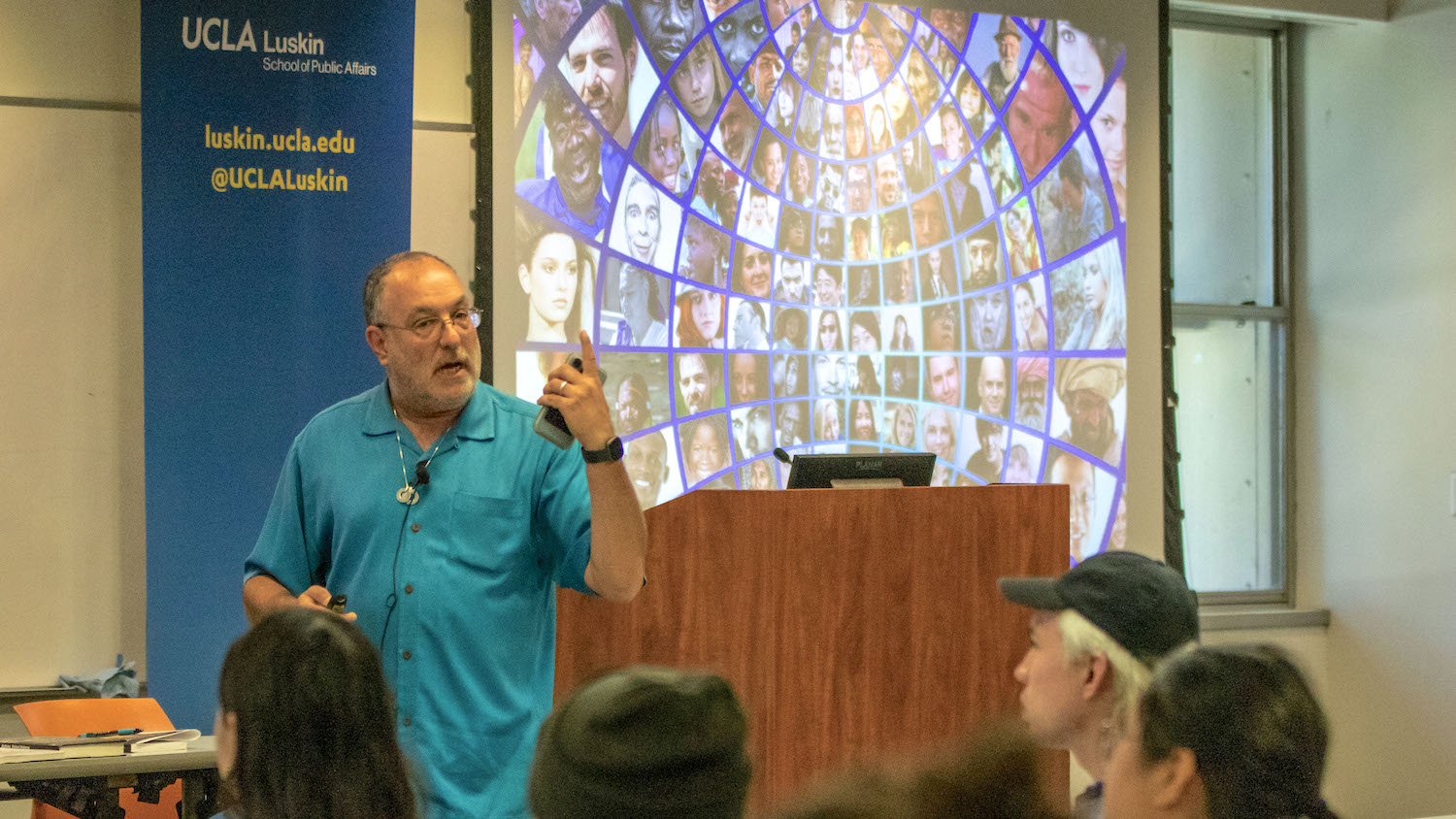Making Sense of School Safety News, Good and Bad
Students from across UCLA gathered at the Luskin School on April 27 to hear school safety expert Ron Avi Astor’s insights on a complex question: If the overall level of violence on California campuses is in steep decline, why do we continue to see mass shootings that take young lives and terrorize communities? After decades of research, Astor has concluded that the two realities should be considered separate phenomena. The shootings, perpetrated by troubled individuals seeking lasting fame, dominate headlines, and Astor shared that he, too, had feared for the safety of his grandchildren when they started preschool. Yet his newly published research analyzing survey responses of more than 6 million California middle and high school students from 2001 to 2019 showed dramatic declines in physical fights and weapons-related behaviors, as well as non-physical types of victimization such as harassment and bullying. Astor pointed to stepped-up investment in improving campus climate over the last two decades, including the placement of more social workers, psychologists, counselors and other service providers on school campuses. These professionals have had a great impact on creating safe and welcoming schools but don’t get credit for all the work they have done to protect children, Astor told the students from UCLA’s social welfare, education, public health, law and other programs. Still, firearms remain in our midst, and Astor suggested that gun safety education, including licensing requirements, is one step communities can take to protect residents. “Let’s not let the school shootings take over the whole story and militarize our schools, which is really my greatest concern,” he said.



